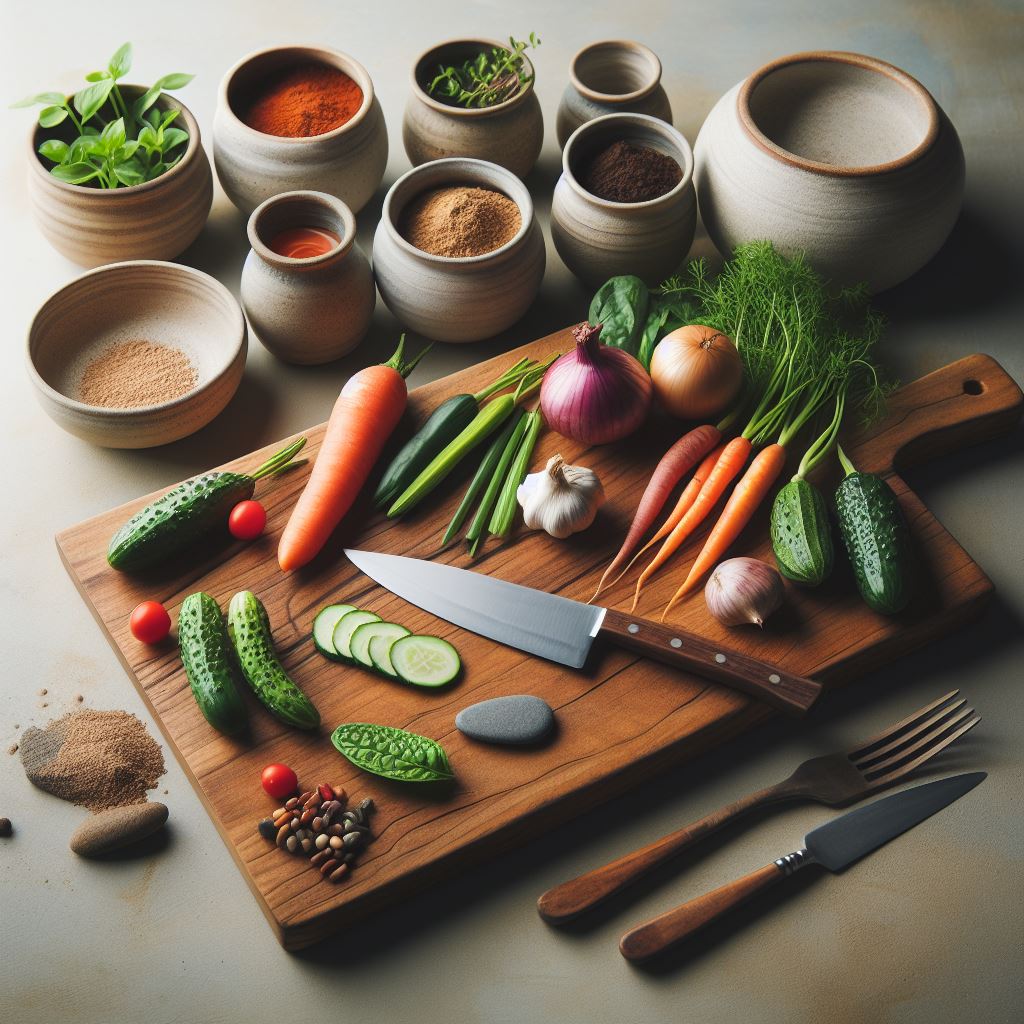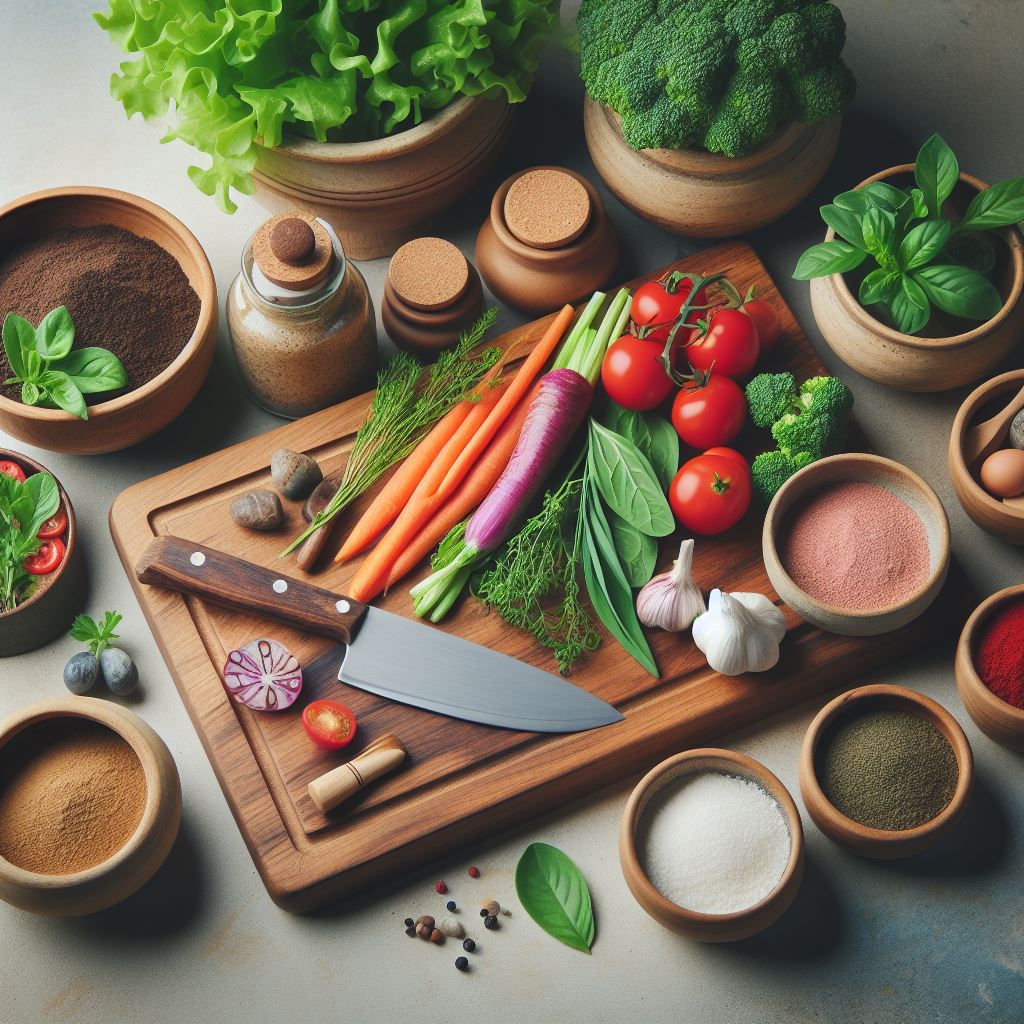Physical Address
304 North Cardinal St.
Dorchester Center, MA 02124

Natural Elements Cookware refers to kitchen utensils made from materials sourced from nature. These eco-friendly products often include materials like stone, clay, copper, and cast iron.
Natural Elements Cookware provides a wholesome cooking experience, utilizing elements that have been a cornerstone in kitchens for centuries. These materials are prized for their durability and natural non-stick properties, contributing to a legacy of long-lasting kitchen essentials. Users benefit from the even heat distribution and retention properties of such cookware, which is key for perfectly cooked meals.
Given the rising awareness about health and sustainability, Natural Elements Cookware meets the demand for products free from synthetic chemicals and coatings found in some modern cookware. Embracing these natural materials aligns with eco-conscious culinary practices and supports a movement towards more sustainable living. Choosing this cookware type is not just a nod to tradition but a commitment to quality and environmental responsibility in the kitchen.
Read More: Miracle Maid Cookware Warranty: Your Key to Endless Cooking!
The Rise of Natural Elements in Cookware marks a significant shift in kitchen trends. Consumers increasingly seek out products that align with a sustainable lifestyle. The demand for cookware made from natural materials is on the upswing. This reflects a collective move towards health-conscious living and eco-friendly choices.
In a world of synthetics, the return to natural materials for cookware is like a breath of fresh air. Traditional substances such as cast iron, clay, and copper are seeing a resurgence. They offer both durability and a natural simplicity that modern cooks value.
Cookware from natural elements aligns with two critical movements: healthy cooking and ecological responsibility.
| Health Benefits | Eco Advantages |
|---|---|
| No harmful chemicals leaching into food. | Biodegradable materials reduce environmental impact. |
| Enhances food flavors naturally. | Long-lasting products decrease waste. |
| Supports a nutritious cooking style. | Production processes often have lower carbon footprints. |
Imagine a kitchen where every dish comes out perfect. The secret? The tools you use. Natural elements cookware has become a must-have for any kitchen. Natural materials ensure even cooking, robust flavors, and a connection to culinary history that modern gadgets can’t match. Let’s dive into the materials that are lighting up the culinary world with style and efficiency.
Cast Iron: A Timeless Kitchen Staple
Cast iron cookware stands out for its durability and versatility. It gets better with age. Foodies love it for its ability to retain heat and give a uniform cook.
Benefits of Cast Iron
Stoneware: The Ancient Cooking Companion
Stoneware, known for its natural non-toxic properties, is an ancient tool making a comeback. This eco-friendly option distributes heat evenly for a perfect bake.
Aspects of Stoneware
| Feature | Benefit |
|---|---|
| Heat Retention | Keeps food warm for longer |
| Heavy-duty | Lasts for years |
Copper: The Chef’s Choice for Precision
For those who seek control, copper cookware is top-tier. It reacts quickly to temperature changes, offering exact cooking conditions.
Advantages of Copper
Read More: Blackstone Grease Trap Hack: Unleash the Full Potential of Your Kitchen
Cooking with natural elements brings us closer to Earth’s goodness. Chefs and home cooks alike celebrate the use of materials like clay, stone, and cast iron. A shift to natural cookware taps into age-old practices, enhancing flavors and providing numerous benefits. Let’s explore how.
Imagine biting into a meal where every ingredient’s taste stands out, vibrant and true. Clay pots and stone cookware enable this experience. They retain heat evenly, ensuring herbs and spices release their full aromatic potential. Foods cooked in such vessels are often described as comforting and richly layered in flavors.
Natural cookware lasts generations. Unlike synthetic options that might degrade over time, materials like cast iron can withstand high heat and repeated use. These pieces often become heirlooms, standing the test of time. Care for them properly and they remain as reliable as the day they were crafted.
When seasoned well, cast iron pans and other natural cookware provide an excellent non-stick surface, eliminating the need for chemicals. This means no synthetic coatings will leach into your food. You cook healthy meals, reducing the risk posed by artificial non-stick surfaces decomposing at high temperatures.
| Natural Material | Key Benefits |
|---|---|
| Clay | Enhances flavor, retains moisture |
| Stone | Even heat distribution, high durability |
| Cast Iron | Long-lasting, naturally non-stick when seasoned |
Shift to natural cookware today for a healthier lifestyle and savory meals.

Credit: debuyer-usa.com
Natural Elements Cookware offers timeless beauty and unmatched durability for your kitchen. Like all treasured possessions, these pieces require special care to ensure they last for generations. A little attention goes a long way in maintaining the performance and appearance of your cookware. Proper upkeep involves distinct methods for cast iron, stoneware, and copper – each material with its own set of care instructions. Master these simple routines to keep your natural cookware in prime condition.
Cast iron skillets gain non-stick qualities with proper seasoning. Seasoning is the process of baking oil onto the iron to protect it. This barrier prevents rust and creates a smooth cooking surface. Follow these straightforward steps:
Repeat this process several times a year to maintain the skillet’s finish.
Stoneware pieces are beloved for their heating and versatility. To care for these items, avoid sudden temperature changes. Here’s the best way to keep your stoneware in top shape:
Never use harsh chemicals or abrasive pads on stoneware.
Copper cookware conducts heat efficiently and offers a stunning kitchen display. To keep its luster, regular polishing is key. Simple ingredients from your pantry will do the trick. Mix equal parts of flour, salt, and white vinegar to create a paste. Here’s how to polish it:
This will restore the warm glow to your copper pieces.
Incorporating Natural Elements Cookware into Your Kitchen breathes new life into your home’s heart. Natural cookware not only aligns with eco-friendly practices but also introduces timeless beauty. The warmth and authenticity it brings to your cooking experience are unmatched. Let’s explore how to integrate these pieces into your culinary realm seamlessly.
Selecting the perfect pieces is essential. Consider the following:
Materials such as cast iron, clay, and stone are popular. They enhance flavor and last long.
Style your kitchen with natural cookware:
Choose pieces that meld function with beauty.
Natural elements cookware complements modern appliances. Mix and match:
| Appliance | Cookware Pairing |
|---|---|
| Induction Stovetop | Cast iron skillets |
| Convection Oven | Stone bakeware |
| Smart Fridge | Clay pot storage |
Let the old-world charm meet the new-age tech.

Credit: www.goodhousekeeping.com
Embrace the charm of natural elements cookware to elevate your culinary creations. These earthen treasures remind us of a time when every meal was a masterpiece of simplicity and tradition. They are not just tools but a source of inspiration for cooks who value purity and authenticity in their kitchen. Let’s explore the endless possibilities that natural cookware brings to our tables.
Unleash your creativity with recipes that are perfect for your clay pots and cast-iron skillets. Natural cookware preserves nutrients and enhances flavors, turning simple ingredients into gastronomic wonders.
Top chefs around the world advocate for the use of natural cookware. Learn from their experience with these insider tips:
Join a community of like-minded individuals in workshops that celebrate the art of cooking with natural elements. These gatherings are perfect for:
| Workshop Type | Benefits |
|---|---|
| Cooking Classes | Hands-on experience with expert guidance |
| Demonstrations | A live showcase of techniques and recipes |
| Material Discussions | Understanding the benefits of different natural materials |

Credit: www.amazon.com
The primary benefits include enhanced flavor, non-toxic surfaces, and even heat distribution. Natural cookware often lasts longer and can become non-stick with proper seasoning. Additionally, it’s eco-friendly, reducing your carbon footprint.
To season natural cookware, clean it, apply a thin coat of oil, and heat it. Oven or stovetop methods both work. This creates a natural, non-stick surface and prevents rust. Repeat this process occasionally to maintain seasoning.

Most natural elements of cookware can withstand high oven temperatures, especially cast iron and stoneware. Check the manufacturer’s guidelines to ensure the specific temperature limits and whether any parts are oven-safe, such as wooden handles.
Typically, natural elements cookware is not dishwasher safe. The harsh detergents and high heat can damage the material and seasoning. Hand washing with a gentle detergent and warm water is recommended to preserve its quality.
Embracing natural element cookware elevates not just meal quality but also kitchen sustainability. It’s a choice for health, tradition, and environmental harmony. Remember, investing in these timeless pieces is investing in a greener future while cherishing the flavors of the past.
Transform your cooking experience and plate up nature’s goodness with every meal.